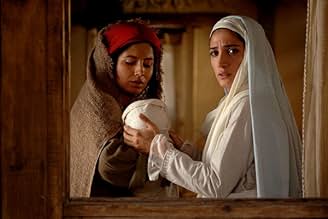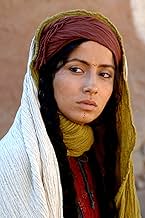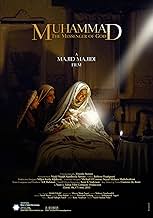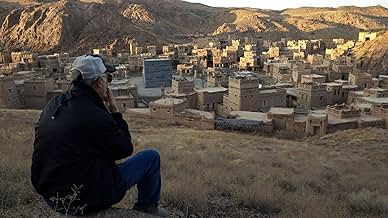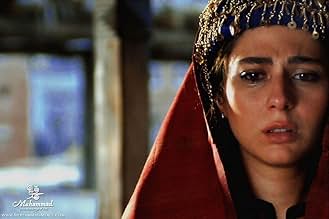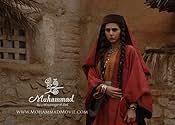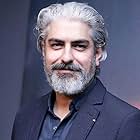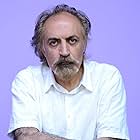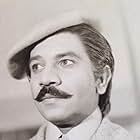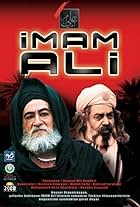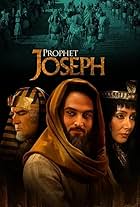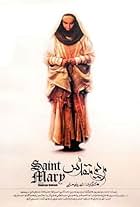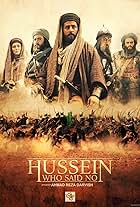IMDb RATING
7.2/10
12K
YOUR RATING
The events, trials and tribulations of the city of Makkah in 7th century AD.The events, trials and tribulations of the city of Makkah in 7th century AD.The events, trials and tribulations of the city of Makkah in 7th century AD.
- Awards
- 1 win & 2 nominations total
Baharak Salehniya
- Thowaiba
- (as Baharak Saleh Nia)
- Director
- Writers
- All cast & crew
- Production, box office & more at IMDbPro
Storyline
Did you know
- TriviaThis movie will be part of a trilogy. Muhammad will never be shown in any of the three films for the respect of his character. This is specifically done in all media in Islam countries to avoid idolization of a renown character to an actor's face. Instead, he is meant to be known by his religious and historical personality profile.
- Quotes
Abdul Muttalib: There is nothing futile in the sight of God.
Featured review
Majidi is a king within the realm of art film, and he sure faced immense challenges managing the first Iranian cinematic project of this scale. The film immerses the audience in an orchestra of beautiful colors, Majidi's specialty, and an outpouring of sublime tunes. Juxtaposed with masterful cinematography of Storaro (although occasionally overdone), Majidi delivers imagery that satisfies aesthetic palates superbly.
The historical period drama, said to be the first part of a trilogy, focuses on prophet Muhammad's childhood. It is of note that, the filmmaker, working within the confines of Islamic conventions, cannot show Muhammad's face, which undeniably renders the project formidable. Hence, the point of view must be shifted, the story must unfold from distributed viewpoints, that must gel together skillfully in order to retain coherence. Though the story does justice vis-à-vis this challenge, it is far from perfection; the script does not mesh well with the visual artistry. The second act is stale, and the last act, though adequate, could be substantially improved. The CGI was noticeably weak; understandable, since it was the very first experience Iranian cinema went through, but still, within the given bounds, could be trimmed down and could easily be improved significantly. This evinces an odd feature of this film: the sense of perfectionism in this film is oddly inconsistent; some parts are perfected masterfully with amazing care, and a few are not even average. In addition to the CGI, the voice of Muhammad is an illustrative example: letting alone professional actors, I am sure that even among Iranian children doing TV commercials there are who are by far better voice actors, both in terms of enunciation and acting, than the kid chosen in this film for the role of Muhammad. What happened to the sense of perfection of the whole team there, I am not sure.
The film strives towards Shia-Sunni neutrality, and succeeds remarkably---unless viewed with absolute cynicism (anything can be deemed as biased if viewed from that lens). The focus is predominantly on the commonalities of the Shia-Sunni accounts, and the chosen story time---Muhammad's childhood---is certainly helpful towards that end. All in all, the film can be best characterized as "promising" (especially when held against the technological status quo of the Iranian cinema) regarding the potentials of cinema for engendering harmony and peace in our ominous and volatile times. It is definitely a must-see.
The historical period drama, said to be the first part of a trilogy, focuses on prophet Muhammad's childhood. It is of note that, the filmmaker, working within the confines of Islamic conventions, cannot show Muhammad's face, which undeniably renders the project formidable. Hence, the point of view must be shifted, the story must unfold from distributed viewpoints, that must gel together skillfully in order to retain coherence. Though the story does justice vis-à-vis this challenge, it is far from perfection; the script does not mesh well with the visual artistry. The second act is stale, and the last act, though adequate, could be substantially improved. The CGI was noticeably weak; understandable, since it was the very first experience Iranian cinema went through, but still, within the given bounds, could be trimmed down and could easily be improved significantly. This evinces an odd feature of this film: the sense of perfectionism in this film is oddly inconsistent; some parts are perfected masterfully with amazing care, and a few are not even average. In addition to the CGI, the voice of Muhammad is an illustrative example: letting alone professional actors, I am sure that even among Iranian children doing TV commercials there are who are by far better voice actors, both in terms of enunciation and acting, than the kid chosen in this film for the role of Muhammad. What happened to the sense of perfection of the whole team there, I am not sure.
The film strives towards Shia-Sunni neutrality, and succeeds remarkably---unless viewed with absolute cynicism (anything can be deemed as biased if viewed from that lens). The focus is predominantly on the commonalities of the Shia-Sunni accounts, and the chosen story time---Muhammad's childhood---is certainly helpful towards that end. All in all, the film can be best characterized as "promising" (especially when held against the technological status quo of the Iranian cinema) regarding the potentials of cinema for engendering harmony and peace in our ominous and volatile times. It is definitely a must-see.
Helpful•5428
- babakfotouhi
- Aug 28, 2015
- Permalink
- How long is Muhammad: The Messenger of God?Powered by Alexa
Details
- Release date
- Country of origin
- Official sites
- Languages
- Also known as
- Mohammad Rasoolollah
- Filming locations
- Production company
- See more company credits at IMDbPro
Box office
- Budget
- IRR 120,000,000,000 (estimated)
- Gross worldwide
- $1,440,044
- Runtime2 hours 42 minutes
- Color
- Sound mix
- Aspect ratio
- 2.00 : 1
Contribute to this page
Suggest an edit or add missing content



